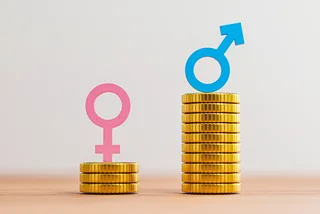On International Women's Day, Czech society hasn't entirely achieved women's emancipation, according to a recent assessment of attitudes toward work, housekeeping, equal pay, and other pertinent areas, scoring an average of 53 out of 100 points.
These findings stem from the Femina Index, a research project conducted by the Solvo Institute focusing on Czech women. The survey, which gathered responses from approximately a thousand participants, coincides with International Women's Day, Friday, Mar. 8.
The Femina Index scrutinizes attitudes across various domains, encompassing positions within the labor market, leadership roles, and the division of responsibilities in household and childcare duties. Based on responses to 57 questions, the index gauges the degree of adherence to traditional versus modern and emancipated gender roles. In the Czech Republic, the average index stands at 53 points, with women scoring 56 points and men 48.
The authors note that while five percent of women score above 76 points, such high scores are rare among men, representing only about 0.5 percent.
Attitudes towards emancipation appear to correlate with age and educational attainment, with younger women, particularly those with college or high school degrees, exhibiting a greater inclination towards modern roles.
Notably, female students demonstrate the highest levels of support for emancipation. Moreover, women in leadership positions and business roles tend to harbor more emancipated perspectives. Despite a decrease in hardline conservatism among young men, the authors observe a prevalent presence of "light conservatives" within this demographic.
More than a third of men and nearly a quarter of women believe it's appropriate to expect women to fulfill traditional roles automatically.
Interestingly, the report reveals that 17 percent of respondents identify as feminists, with eight percent belonging to the younger generation—double the average population and quadruple that of their parents' generation. However, more than three-quarters of men and over half of women perceive feminism as possessing a certain aggressiveness.
PARTNER ARTICLE
The authors attribute such perceptions to factors including education, personal habits, life experiences, and the quality of information individuals receive about feminism.
Regarding household responsibilities, more than a third of men and nearly a quarter of women believe it's appropriate to expect women to fulfill traditional roles automatically. Justifications cited by men include a sense of naturalness, adherence to custom and tradition, and the belief that women are inherently more attuned to household needs and less inclined towards employment.
Women, meanwhile, often cite the male role as the breadwinner and their perceived diligence in caregiving as reasons for upholding traditional roles.
Half of the respondents advocate for women being primarily responsible for ironing, cooking, cleaning, and laundry, with older generations more likely to hold this view. Similarly, three-quarters of respondents believe men should handle minor household repairs and car maintenance, with this belief being more prevalent among younger participants.
Additionally, the survey found that two-thirds of respondents consider it unusual for a mother of a six-month-old child to return to work, and half find it unusual for a woman to hold a high rank in the military.
Furthermore, a significant portion of respondents perceives certain deviations from traditional gender roles as unusual, such as men taking parental leave or working in traditionally female-dominated professions like nursing, and women occupying leadership roles like president or prime minister.
The Solvo Institute, which conducted this research, specializes in examining the economic status of women, the quality of childhood, and the implications of artificial intelligence. Their overarching goal is to unlock human potential and eliminate barriers hindering its realization.












 Reading time: 3 minutes
Reading time: 3 minutes 





























